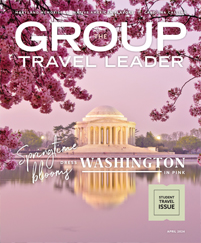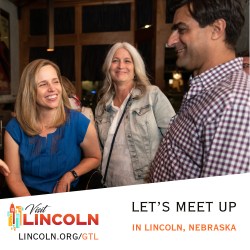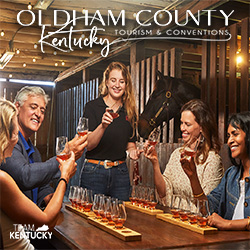SAN JUAN, Puerto Rico — When they arrived in San Juan, most of the 155 travel professionals attending Tourism Cares for Puerto Rico had never heard the term food sovereignty. But by the end of the three-day event, which took place May 8-10, the delegation had a new appreciation for the value of local, sustainable agriculture. And they were inspired to use their influence in the tourism industry to support food sovereignty efforts in Puerto Rico and beyond.
Calling the event a “Meaningful Travel Summit,” Tourism Cares connected representatives of 98 major American tour and travel organizations with Puerto Rican tourism leaders and small-business owners. Over the course of several discussion panels and service projects, the delegation learned about efforts to reform the food infrastructure on the island and how the tourism industry can help contribute to meaningful change.
“In 2017, when Hurricane Maria came through, Tourism Cares was the nonprofit partner to the industry for donations to support tourism recovery,” said Paula Vlamings, Tourism Cares’ chief impact officer. “In Puerto Rico and many island nations, 85% or 90% of their food is imported. When the disasters hit, those ships couldn’t get into port for weeks and weeks, and Puerto Rico went without meat for months. Between the electrical grid going down and their food source held hostage on the waters, they realized that they needed to develop their own self-sufficiency for clean water, power and food sources.”
During the Tourism Cares summit, Puerto Rican tourism and agriculture experts came together for an eye-opening panel discussion on food sovereignty issues. The panel talked about ways that Marriott and other hospitality organizations are working to source more of their food from Puerto Rican farms — which never happened before the hurricane — and how tour companies can integrate experiences in local fishing villages into their itineraries.
“I got feedback that this was an ‘aha!’ moment for delegates to realize how much their purchasing has an impact on the local community,” Vlamings said. “They can be more conscious about how they purchase their food and support the local economy. It’s not always easy. The volume can be so large that buyers can’t get the quality or quantity they want. So that’s what we talked about: how we can support local economies and have great travel experiences as well.”
Through its work with disaster recovery grants in Puerto Rico, Tourism Cares connected with World Central Kitchen, an organization founded by celebrity chef Jose Andres to help reduce food insecurity in places like Puerto Rico through supporting local farms and small businesses.
Last year, Tourism Cares awarded a $20,000 grant through World Central Kitchen’s Plow to Plate initiative to CMTAS, a community center and farm that helps locals learn to sustain themselves through agriculture in Yauco, a mountainous rural area.
“Next time there is a disaster, CMTAS will be ground zero for the recovery,” Vlamings said. “They are supporting small shareholder farmers, giving them plots of land on their farm so people can farm for themselves. That farm is a model of self-sufficiency and sustainability. Our grant helped them build a community kitchen. They brought in mental health professionals to help people deal with PTSD [post-traumatic stress disorder] after the disaster. So it’s a real hub for these mountain communities to learn to be self-sufficient and bring in tourism.”
On the second day of the event, the delegation traveled to Yaucoto to volunteer at CMTAS. At this mountain farm, volunteers broke up into small groups to work on various projects, including helping to build a chicken coop and biodigester as well as building tire walls to prevent animals from being injured as they move through the steep terrain. The group also planted more than 100 indigenous trees used to grow animal feed, as well as aloe plants used for medicinal purposes in areas that lack medical clinics.
Talking about food sovereignty and then volunteering at a community organization working to make it a reality seemed to resonate with many of the American tourism leaders in attendance.
“This event, for me, was a game-changer,” said Robin Tauck, a philanthropist and co-owner of Tauck, a major international tour company. “I believe the advocacy has to stop and the action has to happen.”
Vlamings said that making these kind of connections would continue to be a priority for Tourism Cares.
“That message is getting more and more traction: How do we create a tourism experience that is sustainable and supports the destination? People are asking more and more, whether they’re a travel agent, a reservations specialist or a product development agent. At Tourism Cares, we’re really committed to making those connections. If you plug in tourism, the money goes to that higher purpose, and travelers get a unique experience to be part of something doing good in that community.”
In addition to its regular volunteer projects in destinations around the United States, Tourism Cares is planning to facilitate a series of these Meaningful Travel Summits in various international destinations. The next one will take place in Colombia in the fall of 2020.











